Cause
Understanding the concept of cause is important in science as it helps us to comprehend the reasons behind various phenomena and events. A cause is something that makes an event or outcome happen. It is the reason for an action, change, or result.
Types of Causes
There are different types of causes, including:
- Proximate Cause: This is the immediate cause that directly produces an effect. For example, a match igniting a piece of paper is the proximate cause of the paper burning.
- Ultimate Cause: This is the underlying reason for an event or behavior. It delves deeper into the root cause of a phenomenon. For instance, the ultimate cause of a plant wilting could be a lack of water.
Studying Causes in Science
When studying causes in science, it is important to consider the following:
- Cause and Effect: Recognizing the relationship between cause and effect is crucial. Understanding how one event leads to another helps in making predictions and understanding the natural world.
- Experimental Design: In scientific experiments, researchers manipulate variables to observe their effects. This helps in identifying causes and understanding their impacts.
- Critical Thinking: Developing critical thinking skills is essential for identifying and analyzing causes. It involves asking questions, making connections, and drawing logical conclusions.
Study Guide
To understand the concept of cause, consider the following questions and activities:
- Discuss with your students the difference between proximate and ultimate causes, providing real-life examples.
- Engage students in cause-and-effect activities, such as creating simple experiments to demonstrate cause-and-effect relationships.
- Encourage critical thinking by asking students to analyze everyday occurrences and identify potential causes and effects.
- Explore the concept of chain reactions and how one cause can lead to multiple effects.
By exploring causes in various contexts, students can develop a deeper understanding of the interconnectedness of events and phenomena in the natural world.
[Cause] Related Worksheets and Study Guides:
.◂Science Worksheets and Study Guides Second Grade. The sun and earth
Study Guide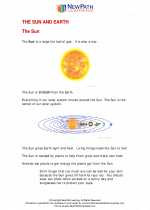 The sun and earth
The sun and earth  Activity Lesson
Activity Lesson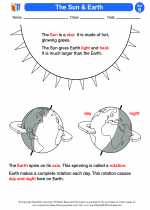 The Sun & Earth
The Sun & Earth  Worksheet/Answer key
Worksheet/Answer key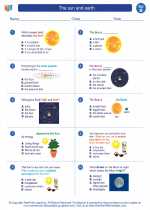 The sun and earth
The sun and earth  Worksheet/Answer key
Worksheet/Answer key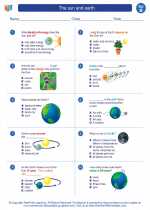 The sun and earth
The sun and earth  Worksheet/Answer key
Worksheet/Answer key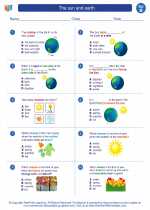 The sun and earth
The sun and earth  Worksheet/Answer key
Worksheet/Answer key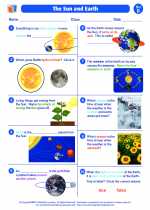 The Sun and Earth
The Sun and Earth  Vocabulary/Answer key
Vocabulary/Answer key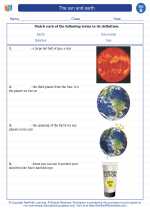 The sun and earth
The sun and earth 

 Activity Lesson
Activity Lesson
 Worksheet/Answer key
Worksheet/Answer key
 Worksheet/Answer key
Worksheet/Answer key
 Worksheet/Answer key
Worksheet/Answer key
 Worksheet/Answer key
Worksheet/Answer key
 Vocabulary/Answer key
Vocabulary/Answer key

The resources above cover the following skills:
Concepts of Earth Science: A student should understand and be able to apply the concepts, processes, theories, models, evidence, and systems of earth and space sciences. A student who meets the content standard should:
Develop an understanding of the cyclical changes controlled by energy from the sun and by Earth's position and motion in our solar system.